To avoid perfume rashes while crafting, you'll need to choose hypoallergenic materials and tools without irritating fragrances. Set up proper ventilation with open windows and air purifiers, and always wear protective gear like non-latex gloves and masks. Test ingredients on a small skin patch before full use, practice safe dilution techniques, clean your equipment thoroughly, and store materials properly to prevent oxidation. These essential safety steps will help protect your skin and enhance your crafting experience.
Choose Hypoallergenic Materials and Tools
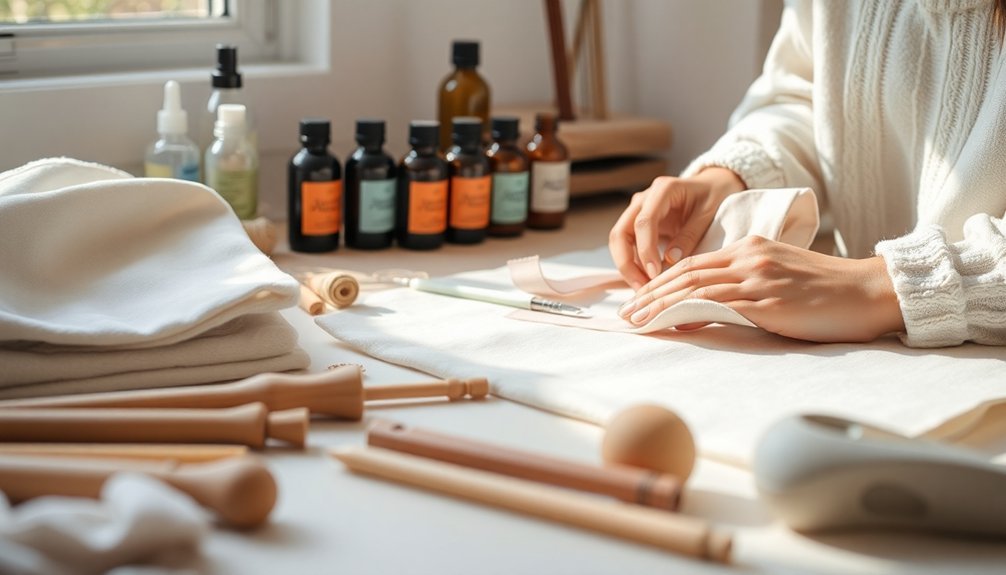
When crafting with fragrance sensitivities, selecting the right materials and tools can make the difference between a comfortable creative session and an allergic reaction.
You'll want to start by choosing hypoallergenic crafting supplies that don't contain irritating fragrances. Look for water-based glues and paints, and carefully review ingredient lists to avoid common fragrance allergens.
Select tools made from non-toxic materials like silicone or stainless steel to prevent skin reactions during your projects.
When working with fabrics, opt for natural fibers instead of synthetic materials that might contain hidden fragrances.
Don't forget to protect yourself by wearing appropriate protective gear, such as gloves and masks, especially when using supplies that could cause respiratory irritation.
These simple material and tool choices will help guarantee your crafting remains both enjoyable and reaction-free.
Set Up Proper Workspace Ventilation
Your workspace ventilation plays an essential role in preventing perfume rashes while crafting, so you'll want to start by opening windows and positioning fans to create consistent airflow.
Install a high-quality air purification system with HEPA filters to trap fragrance particles and other allergens that could trigger skin reactions.
Make sure you're using exhaust fans correctly by positioning them to pull scented air away from your work area and toward the nearest exit point.
Install Air Purification Systems
Proper ventilation stands as an essential defense against perfume-related skin reactions during crafting sessions.
When you're working with materials that might trigger allergic reactions, installing air purification systems equipped with HEPA filters can capture up to 99.97% of airborne irritants, including fragrance chemicals that could harm your skin.
- Choose purifiers with HEPA technology to effectively trap allergens and fragrance particles
- Place your system strategically in your crafting area to maximize air circulation
- Check and replace filters regularly to maintain peak performance
- Combine air purification with workspace ventilation for the best results
Open Windows During Work
Fresh air circulation through open windows serves as an essential safety measure while working with scented crafting materials. You'll minimize your exposure to fragrance allergens and volatile organic compounds by maintaining proper workspace ventilation. This simple step can greatly reduce your risk of developing perfume rashes and other allergic reactions.
| Ventilation Benefits | Health Impact |
|---|---|
| Dilutes allergens | Reduces allergy symptoms |
| Removes VOCs | Prevents skin rashes |
| Improves air quality | Protects respiratory health |
If you're sensitive to fragrances, keeping your windows open while handling crafting supplies is vital for your well-being. The improved indoor air quality not only helps prevent adverse reactions but also creates a more comfortable environment for your creative pursuits. Remember that proper airflow is particularly important when working with scented materials that could trigger skin irritation.
Use Exhaust Fans Properly
Building on the benefits of open windows, strategic placement of exhaust fans takes workspace ventilation to the next level.
You'll want to position these fans near areas where you handle fragrance chemicals and other strong-scented materials. When combined with open windows, exhaust fans create a powerful cross-ventilation system that efficiently removes airborne fragrance particles from your crafting workspace.
- Install fans close to where you work with scented materials to immediately ventilate harmful fumes
- Maintain your exhaust fans regularly by cleaning off dust and debris
- Create cross-ventilation by coordinating fan placement with open windows
- Consider adding air purifiers with HEPA filters for enhanced air quality
With proper ventilation, you'll greatly reduce your risk of allergic reactions while keeping your crafting area fresh and comfortable.
Protect Your Skin With Safety Gear
To protect yourself from perfume-related skin reactions while crafting, wearing the right safety gear is essential.
Start by putting on non-latex gloves to create a barrier between your skin and crafting materials that contain irritants. You'll also want to wear long sleeves and pants to shield your body from direct contact with fragrance allergens.
Don't forget to protect your eyes and respiratory system too. Safety goggles will prevent irritation from airborne particles or splashes, while a proper filtration mask will help you avoid inhaling harmful fragrance allergens.
For maximum protection against contact dermatitis and other allergic reactions, choose safety gear made from hypoallergenic materials. This thorough approach to protective equipment will help you enjoy your craft projects while minimizing the risk of skin irritation from scented materials.
Test Ingredients Before Full Application
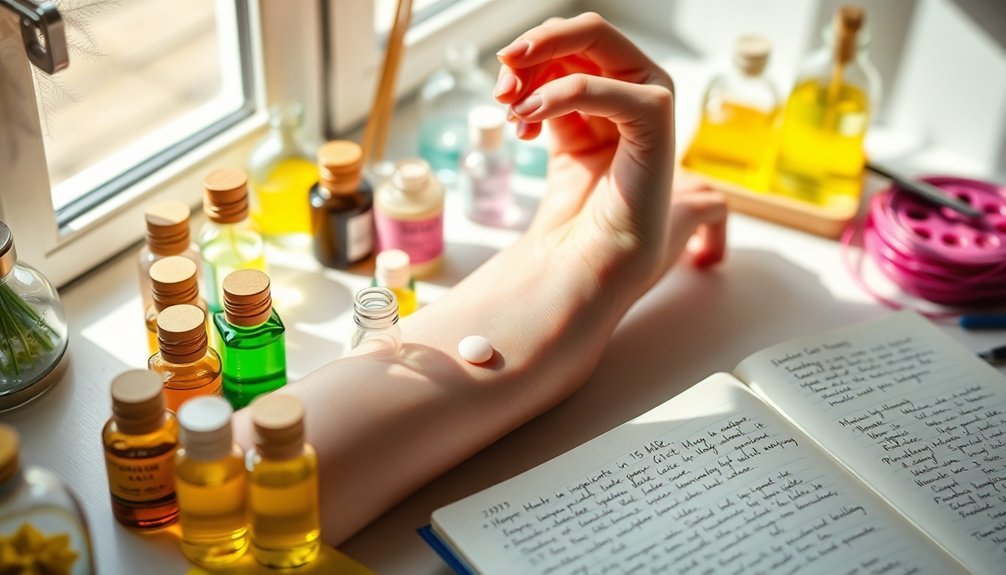
Before diving into any perfume-based craft project, testing your ingredients individually can prevent widespread skin reactions and save you from wasting materials.
Always check ingredient labels for sensitizers like limonene and linalool that might trigger allergic reactions. If you're new to crafting with scents, consider starting with fragrance-free products or gentle essential oils.
- Perform a patch test on your inner elbow, waiting 24-48 hours to monitor for adverse reactions
- Choose hypoallergenic or fragrance-free products to minimize skin irritation risks
- Test natural alternatives, like essential oils, in small amounts before incorporating them into your crafting activities
- Keep a detailed record of products that cause reactions, helping you make safer choices in future projects
Practice Safe Dilution Techniques
When working with fragrances in crafting projects, proper dilution serves as your first line of defense against skin reactions and allergic responses.
To practice safe dilution techniques, always mix essential oils with carrier oils like coconut or jojoba at a ratio of 1-2 drops per tablespoon.
Before using any new fragrance blends in your crafts, you'll want to perform a patch test on a small area of skin to check for potential allergens or sensitivities.
Pay special attention to solvents that can become sensitizers, such as limonene, which may oxidize when exposed to air.
Keep detailed records of the fragrances you use and their dilution ratios – this documentation will help you identify and avoid ingredients that cause skin irritation in future projects.
Clean Your Equipment Thoroughly
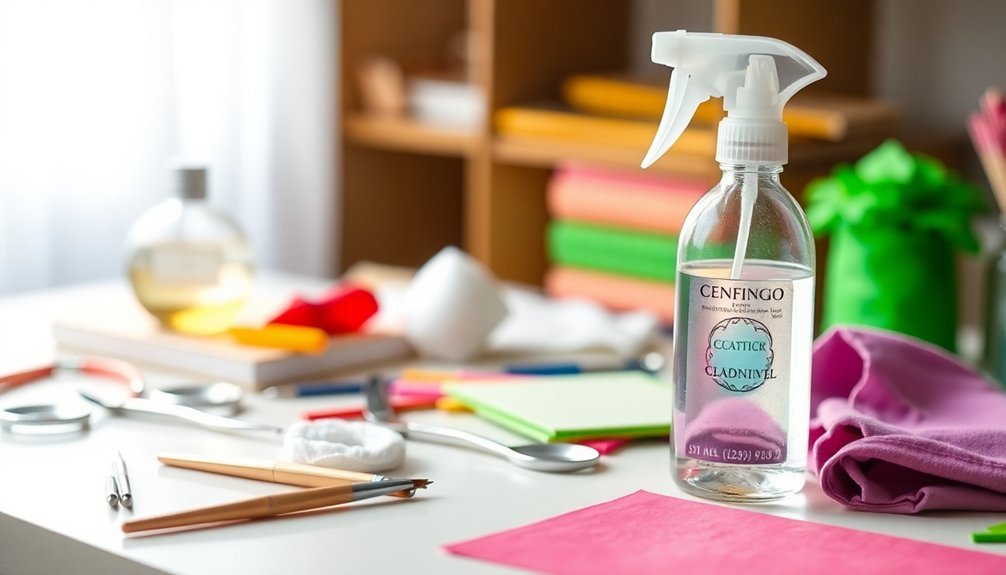
Three key steps in preventing perfume rashes start with maintaining spotless equipment. When you're dealing with fragrance sensitivity, it's essential to thoroughly clean your crafting tools with fragrance-free cleaning products.
Use hot, soapy water to remove all traces of irritants that might trigger unwanted reactions.
- Sanitize all surfaces and equipment before starting new projects
- Choose hypoallergenic tools whenever possible for sensitive skin
- Wash shared equipment carefully to prevent cross-contamination of allergens
- Use only fragrance-free cleansers to avoid introducing new irritants
Remember to clean your tools regularly, not just between projects.
This extra attention to cleanliness helps you avoid reactions while crafting and guarantees your creative space stays allergen-free.
Store Materials Properly to Prevent Oxidation
Proper storage of your fragrance-containing materials plays an important role in preventing skin reactions. To prevent oxidation of fragrance chemicals, you'll need to store materials in a dark, cool location away from direct sunlight and heat.
Using airtight containers is essential, as they limit air exposure that can trigger unwanted chemical changes in your crafting supplies.
Keep your materials away from moisture and humid environments, which can speed up the degradation process and create potential allergens.
Don't forget to label everything with purchase dates and proper storage instructions. It's also smart to rotate your inventory regularly, using older items first to minimize the risk of allergic reactions from oxidized fragrances.
These simple storage practices will help maintain the integrity of your crafting materials and protect your skin.
Frequently Asked Questions
How Do You Prevent Perfume Rash?
You'll prevent perfume rash by using fragrance-free products, wearing protective clothing, conducting patch tests, limiting exposure to scented items, and maintaining good ventilation. Keep antihistamines handy for immediate symptom relief.
How Do I Stop Being Allergic to Fragrance?
You can't completely "stop" being allergic to fragrance, but you can manage it by avoiding scented products, choosing fragrance-free alternatives, getting patch tested, and using air purifiers to minimize exposure to allergens.
What to Avoid With Fragrance Allergy?
You'll need to avoid scented products like perfumes, lotions, detergents, and cleaning supplies. Stay away from synthetic fragrances in cosmetics, air fresheners, and personal care items to prevent allergic reactions.
How Do You Prevent Perfume Oxidation?
Store your perfumes in a cool, dark place using opaque, sealed bottles. You'll want to avoid sunlight and heat exposure. Don't forget to decant into smaller containers to minimize air contact.
In Summary
Making your own perfumes can be a rewarding hobby, but you'll need to stay vigilant about safety. Remember to test ingredients, maintain proper ventilation, and wear protective gear every time you craft. By following these guidelines and keeping your workspace clean and organized, you'll minimize your risk of developing rashes and other skin reactions while enjoying your perfume-making journey.
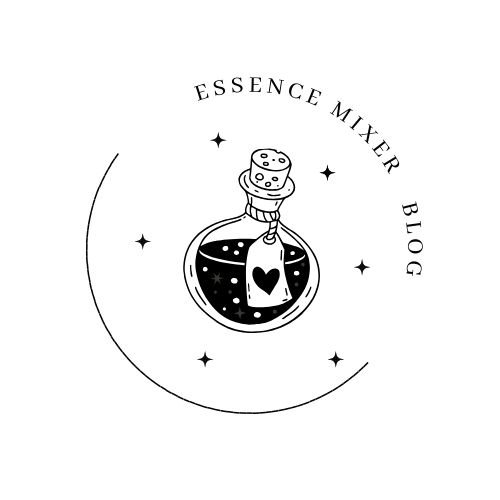
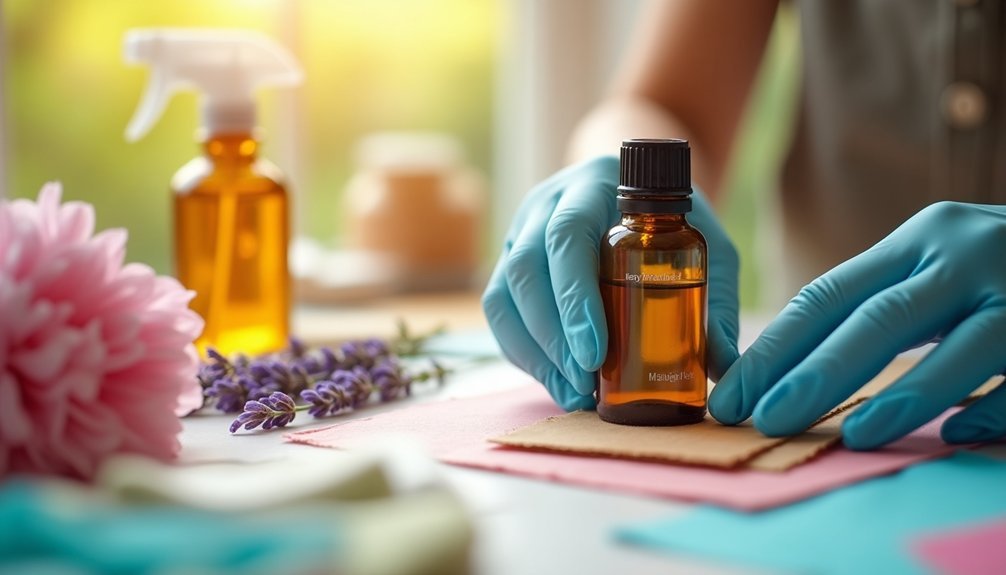
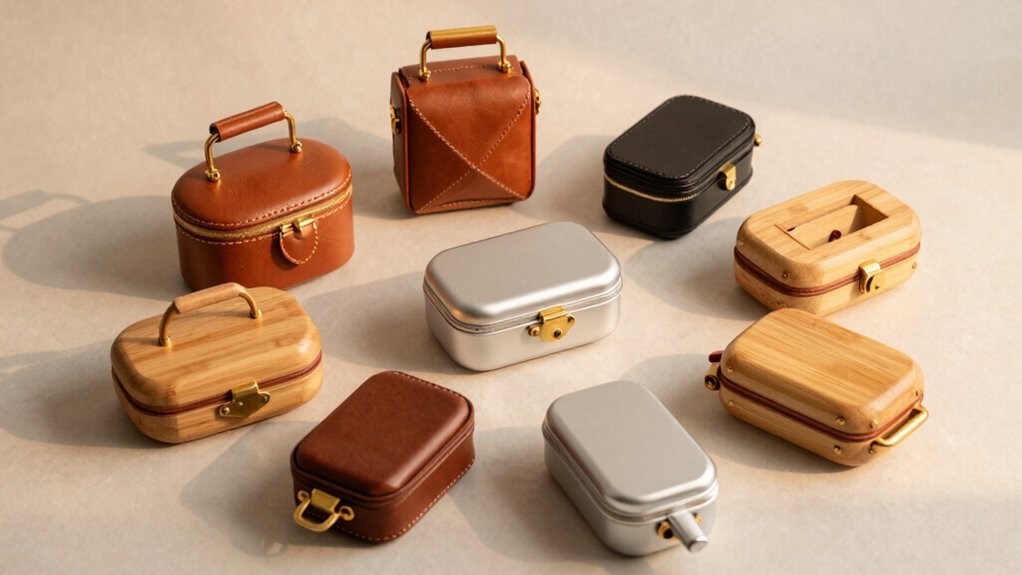
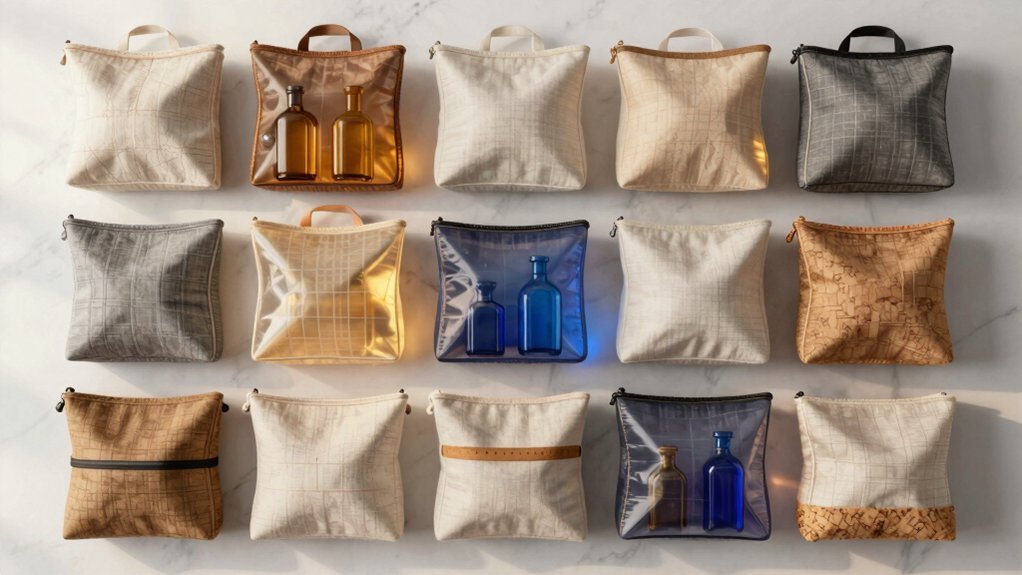
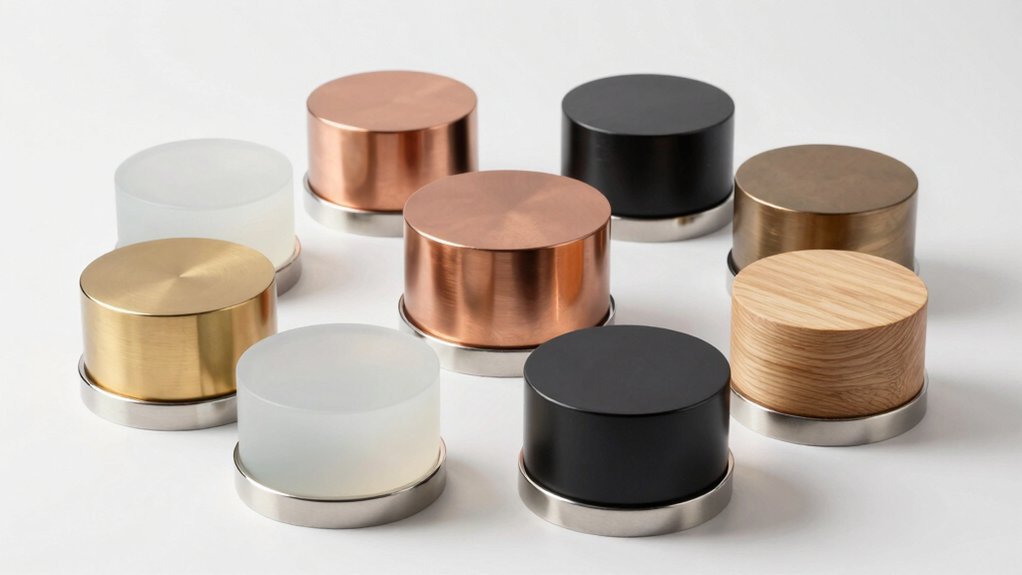
Leave a Reply